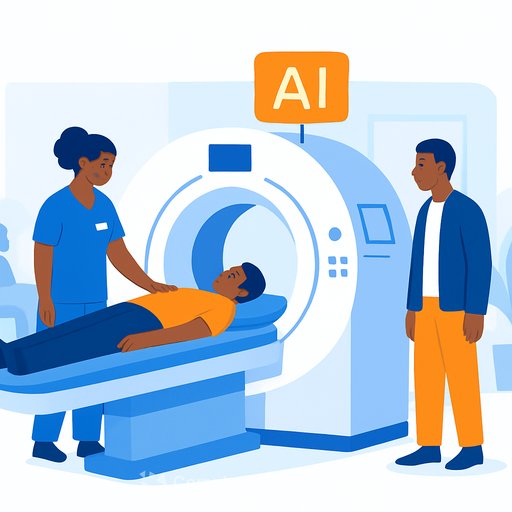Building Trust in Artificial Intelligence for Healthcare: Lessons from Clinical Oncology
A recent review published in the journal AI in Precision Oncology addresses the skepticism surrounding artificial intelligence (AI) in healthcare. It highlights key concerns and suggests practical steps to foster trust in AI applications, especially within clinical oncology.
Trust is essential for AI to be effectively integrated into healthcare settings. While AI promises improved diagnostics and treatment personalization, patients often worry about data privacy, potential biases in algorithms, and the opaque nature of AI decision-making. Clinicians, meanwhile, question the clinical validation and transparency of these systems.
Key Concerns in AI Adoption
- Data Privacy: Patients want assurance their sensitive information is secure.
- Algorithmic Bias: Unequal outcomes caused by biased training data undermine fairness.
- Lack of Transparency: Both patients and providers struggle to trust AI decisions they cannot fully understand.
- Clinical Validation: Physicians need clear evidence that AI tools are reliable and effective.
Building Confidence in AI
The authors recommend implementing strong data governance frameworks to protect patient information. Transparency in AI processes and involving all stakeholders—patients, clinicians, developers—in the AI lifecycle are crucial steps. Ethical considerations must be prioritized, ensuring that AI innovations are accessible and equitable.
Douglas Flora, MD, Editor-in-Chief of AI in Precision Oncology, compares introducing AI into oncology care to adding a new team member. Trust develops only through careful vetting, ongoing training, and consistent performance. AI systems must demonstrate clear reliability and maintain transparency to earn the confidence of healthcare professionals and patients alike.
By focusing on ethical guidelines, thorough clinical testing, and patient-centered design, AI can transition from being viewed as a mysterious technology to becoming a dependable partner in cancer care.
About AI in Precision Oncology
AI in Precision Oncology is the only peer-reviewed journal dedicated exclusively to AI applications in clinical and precision oncology. Led by Douglas Flora, MD, and supported by international experts, the journal offers a platform for significant research and updates on advances in this field.
About the Publisher
Mary Ann Liebert, Inc. is a global media company focused on delivering peer-reviewed research and authoritative content in biotechnology, life sciences, specialized clinical medicine, and public health. Their publications support the advancement of knowledge and practice across healthcare disciplines.
Your membership also unlocks:





